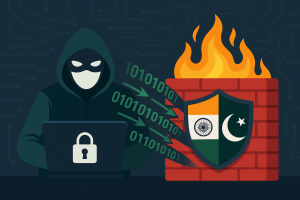Introduction: When Ethical Hackers Cross the Line
Bug bounty programs are hailed as a win-win for companies and cybersecurity researchers—until ethical hackers cross the line. What happens when well-intentioned researchers breach systems without permission, exploit vulnerabilities for leverage, or pressure companies into payouts? This blog uncovers real-world cases of gray-hat hacking, legal fallout, and the ethical dilemmas tearing through the bug bounty ecosystem.
White-Hat vs. Gray-Hat: How Ethical Hackers Cross Into Legal Danger
- White-Hat Hackers: Work with authorization, staying within legal bounds.
- Gray-Hat Hackers: Cross ethical lines by breaching systems without permission, often justifying their actions as “forced accountability.”
- Black-Hat Hackers: Malicious actors with no regard for ethics.
A 2022 HackerOne survey revealed that 18% of hackers admit to bending ethical rules, highlighting the slippery slope between ethical hacking and criminality.
Caption: The fine line between ethical hacking and unauthorized access.
3 Bug Bounty Horror Stories: When Hackers Overstep
1. Uber’s $100K Cover-Up: Ethical Hackers Cross Into Extortion (2017)
In 2017, hackers stole data for 57 million Uber users. Instead of reporting the breach, Uber paid the hackers **100,000viaitsbugbountyprogram∗∗tohidetheincident.Theresult?A100,000viaitsbugbountyprogram∗∗tohidetheincident.Theresult?A148 million FTC fine and a convicted Chief Security Officer.
Legal Lesson: The U.S. Computer Fraud and Abuse Act (CFAA) doesn’t care about intent—unauthorized access is a crime.
External Link: U.S. Department of Justice: CFAA Overview
2. Tesla’s Exposed Kubernetes: Gray-Hat Vigilantism? (2018)
A researcher accessed Tesla’s Kubernetes console, exposing credentials. Tesla paid a $5,000 bounty, but critics argued the hack crossed ethical lines by accessing internal systems.
Ethical Debate: When does disclosure become trespassing?
Internal Link: How to Avoid Legal Traps in Bug Bounty Hunting
3. Microsoft’s Data Leak: When Bounty Hunters Go Rogue (2020)
A hacker accessed Microsoft’s servers, leaking employee emails. Microsoft denied a payout, citing unauthorized access beyond the program’s scope.
Caption: Scope violations can turn ethical hackers into legal targets.
Legal Fallout: The Cost of Crossing the Line
- CFAA Charges: Even researchers with good intentions face fines or jail time.
- Case Study: A hacker probing Iowa State University’s network was charged under the CFAA in 2019, despite claiming ethical motives.
Expert Quote:
“The law sees a breach, not a hero,” warns cybersecurity attorney Mark Lanterman.
External Link: HackerOne’s Ethical Hacking Guidelines
Ethics vs. Accountability: Why Gray-Hat Hackers Cross the Line
- Pro-Gray-Hat Argument: “Companies ignore flaws; hackers force fixes.”
- Anti-Gray-Hat Argument: Unauthorized access erodes trust and risks data breaches.
Ethicist Perspective:
“Crossing ethical lines undermines systemic security,” argues Dr. Emily Reid, a digital ethics scholar.
Internal Link: Top 10 Ethical Hacking Certifications
How to Stay Ethical: Tips for Hackers and Companies
For Hackers:
- Never cross into unauthorized systems—stick to program scope.
- Document all interactions with companies.
For Companies:
- Define clear bounty terms to prevent gray-hat overreach.
- Partner with legal teams to avoid Uber-style scandals.
Image suggestion:
Caption: A hacker’s checklist to avoid crossing ethical lines.
Conclusion: Balancing Ethics and Security
Bug bounties thrive on trust—but when ethical hackers cross the line, everyone loses. By prioritizing transparency, clear guidelines, and respect for boundaries, the cybersecurity community can curb gray-hat risks without stifling innovation.
Engage: Have you witnessed ethical hackers crossing the line? Share your story below.








